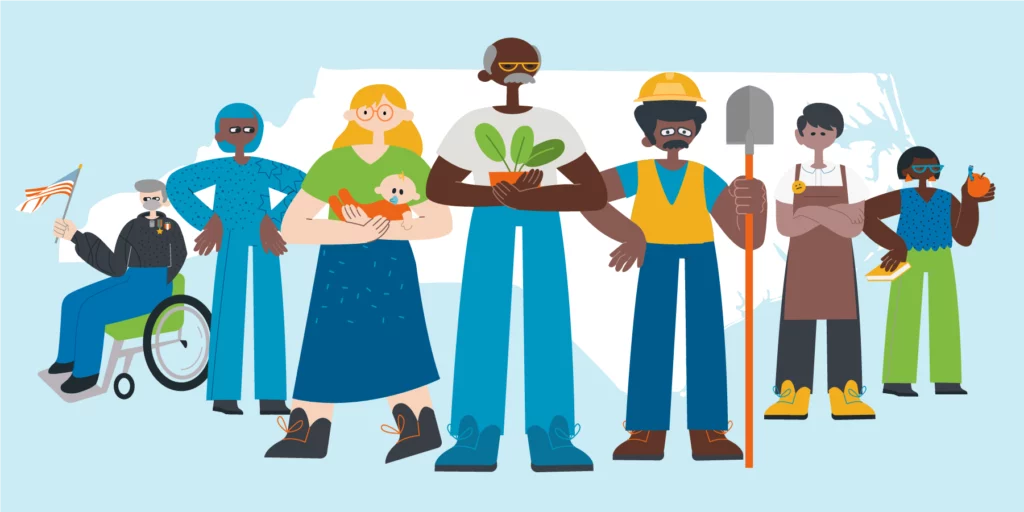Meet Our 2022 Better NC Fellows: Abby Karp
The NC Budget & Tax Center partners with the NC Black Alliance to host the BetterNC Fellowship, which is a 6-month opportunity for individuals to deepen their engagement and understanding in fiscal and economic policies in connection to the work they are doing in their communities. This year we welcomed our second cohort of BetterNC Fellows, who hailed from seven counties across North Carolina.
Join us throughout this month at NCBudget.org/BetterNC as we learn more about our fellows and the projects they are implementing that integrate what they learned during their time in the fellowship.
Last week, we learned more about Felisha McElvine and the work she is doing in Bladen, Robeson, and Columbus counties. This week, we are introducing Abby Karp, a retired teacher in Guilford County schools who hopes to spread awareness of the impacts of tax policy on everyday North Carolinians.
Abby Karp (She/her/hers)

Abby Karp first became involved in her community as an organizer, returning to political work in 2017 as a co-founder of Swing Left Greensboro, a campaign manager for a state legislative race, and a deep canvasser for Down Home NC. Outside of her personal life, Abby has taught middle and high school students in Guilford County for 24 years. She also has a background in journalism and management.
For her project, Abby created a tax simulation focused on flat tax rates and their impact on different people within her community. She is currently working with a colleague who is a teacher in the Guilford County School system to pilot the activity.
How did your experience with the BetterNC Fellowship connect to the work you are doing in Guilford County?
I applied to be a BetterNC fellow because I was not very knowledgeable about the economic side of public policy. My experience as a teacher and a political canvasser showed me a need to lead people from a simplistic response to public policy to a deeper and more equitable understanding. The BetterNC workshop sessions on equitable investments and tax policy influenced my decision to create a tax simulation for high school aged students and adults.
When people think about taxation policy, they often don’t have the information needed to consider its more subtle, and potentially injurious, effects on various subsets of the NC population. Through learning about different taxation models, I became more aware of the NC tax system and its flat percentage income tax, which adversely affects low-income people. Unfortunately, that policy appears to many voters to be “fair,” since it appears to mean that poorer people pay less state tax than richer ones.
My tax simulation is designed to help people of all ages grasp the differing impacts a flat income tax rate has on families of various means. Participants will design a budget to fit an assigned income level, and then choose which expenditures they will need to alter or sacrifice to pay state taxes. The effect on a well-off family will likely be negligible, while a lower-income family would have to make more impactful choices about housing, transportation, food, etc. After the simulation, participants will discuss different taxation models with an eye to what’s “fair” for the community.
What do you think North Carolinians should know about budgeting in their communities?
North Carolina took a huge turn in economic policies in the 2010s, which has resulted in tangible harm to our communities. Even seemingly “fair” laws about revenue and expenditures are not equitable and are supporting white supremacy culture. Also, there are ways for groups and individuals to make small inroads in influencing some economic policy.
How can you support Abby’s work?
Please share my tax simulation exercise by making it publicly available online, for use by educators, group facilitators, etc. If you would like more information about how to access the project, please reach out to me!
Next week, we will learn more about our fellow Latoya Beatty! Latoya is a doctor hailing from Columbus County. For her project, she plans on hosting a community conversation to rally around reinvigorating a local community center to meet local needs.


